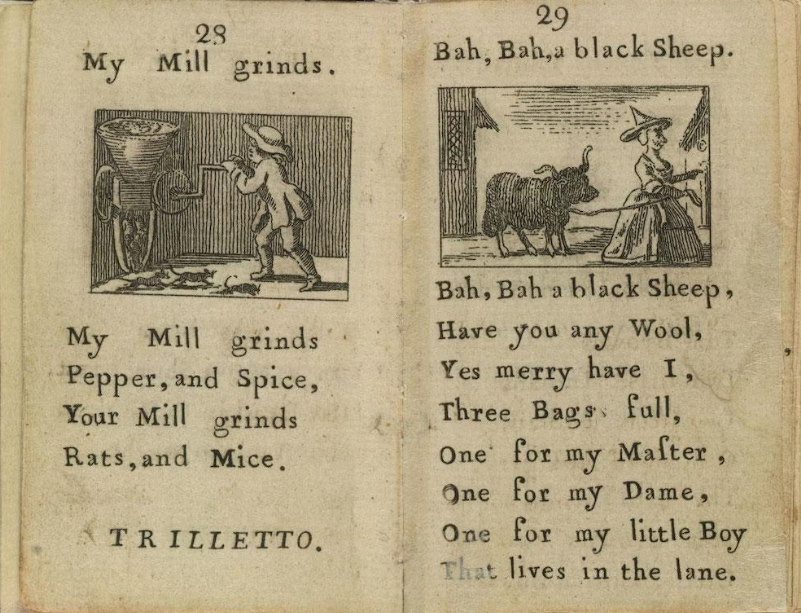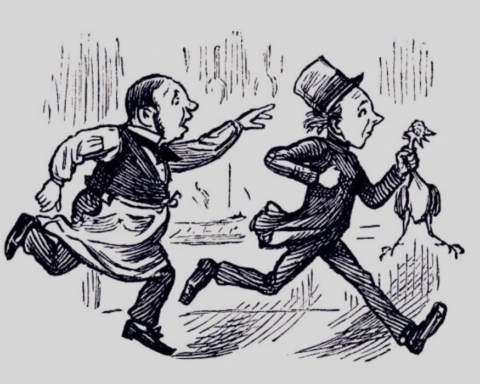Rhyme is an eclectic instrument, tracing its roots back to the Asian civilizations. Dating to the works of Shi Ching, this device has proved its worth at every turn of the literature. Used for a long time in children’s poems, it made its way into contemporary literature at the advent of the sixteenth century.
It became a signature of Shakespearean sonnets, emerging in his plays as the renowned ‘end rhymes.’
In his play the tempest, which is regarded as one of the final independent creations of Shakespeare, there is heavy use of rhyme as a literary device.
With the dawn of rap, rhyme reached a peak in popularity. It became central to rap. Rhyming, rhythm, and the street vernacular were the basis of rap.
With the modern rap and cultural movement in New York in the 1970s, rhythm and rhyme had already been established as a prominent literary tool in English.
Is it hard to rhyme in English?
English is a paradox in rhyme. The language is expansive, with a wide array of verbs that make it manageable to compile options for rhymes. The word ‘bee’ has about 930 words that rhyme with it.
No doubt rhyme has a widespread influence in modern English literature. The quintessential device of this language has always been alliteration.
Alliteration is central in Old English, Old Norse, and Old Saxon. In Old English, alliteration was so critical that it even found its way into the children’s names. On the verge of the fifteenth century, its exclusive impact on English literature began to change with the introduction of rhyme in texts.
Once regarded as a tool for effortless memorization in children’s texts, Shakespearean sonnets presented rhymes in a new light.
Rhyme became the new vogue, finding its place in both poles of the literary world. From ‘baba black sheep’ to the ‘Ode to a Nightengale,’ rhyme showed drastic assortment in its interpretation.

English is a contradictory language, with multiple pronunciations for a single word. This variety in its delivery makes rhymes a tricky subject. The words might rhyme seamlessly in one local pronunciation, and will appear peculiar and crude in another.
Even if an author finds good rhymes, there’s no guarantee that the sentences will be acceptable in rhythm for other hubs of the world.
The Romance languages, the languages associated with vulgar Latin of the fourth century, are more formidable to rhyme than English. English has more phonemes and phonotactics, which makes it straightforward.
This problem led to authors divulging in ‘weak rhymes,’ where the words with the same sounds and similar spellings are given precedence over the others. This rhyme leads to an immature stance of the text, as weak rhyming is now linked with poor writing.
The only condition in which weak rhyming works is the use of rhyme for memorization in children’s texts and poems.
What is the hardest language to rhyme in?
The challenge of rhyme in a language is tied with the concept of solid and weak rhymes. Weak rhymes are the ones in which words from the same class rhyme.
Strong rhymes, utilizing different classes of words, require mastery of a language way beyond the everyday conversational vocabulary.
We view the languages that are conversationally fluent easier to formulate weak rhymes. In Russian, for example, considerable words sound the same and have similar spellings.
Such a language will be easy to make children’s poems. But the high-end classics or epic poetry is tough to compose in this language.
Any language that makes it challenging to craft strong rhymes is considered a complicated rhyming language.
Typically, English is a language that has diverse usage of both types of rhymes. Stress is essential in English pronunciation, making it far easier to rhyme words of different classes with varying pronunciations.
Traces of rhyme has been found in all ancient languages. It has been a significant component of Arabic, dating back to the fifth century. It is believed that this literary device was first introduced in English under the influence of Arabic in ‘Al Andalus‘ modern Spain.

The roots of rhyme in English literature thus have a rich influence on Arabic poetry. Arabic has constructed rhyme as a popular literary device for millennia.
Rather than saying that it is easier to rhyme in Arabic, it is fitting to say that rhyme is so quintessential to Arabic roots that it is formidable to write without it.
Is rhyming difficult in English?
English has a manifold use of rhyme in every facet of poetry and music. Starting in the Medieval era under Arabic and Irish influence, this literary device saw a massive rush in favor of Shakespearean sonnets.
With the peak of rap and hip-hop culture, rhyme has evolved into one of the pillars of English poetry, so much so that most English poets begin their journey by incorporating weak rhyme in their work.
English is a phonetic language focused mainly on the delivery and pronunciation of words. It has helped establish rhyme because its use is associated with the musical outcome of a text.
Although English is not a rhyme-poor language, it is still taxing. Current Mandarin has restricted syllables making it hard not to rhyme in the language. Thus if we were to consider a language most effortless to rhyme in, Modern Mandarin would be at the top of the list.

Compared to it, English can be viewed as complex. Especially when some words, like oranges, have no possible rhymes even with the extensive thesaurus of verbs in English.
On the other extreme, many words have more than five hundred rhymes. English has, and always will, remain a paradox in rhyme, driving a rich influence from it while confronting ordeals at multiple turns.
Politigory provides in-depth reviews of science, history, humanities, religion, social sciences and arts











